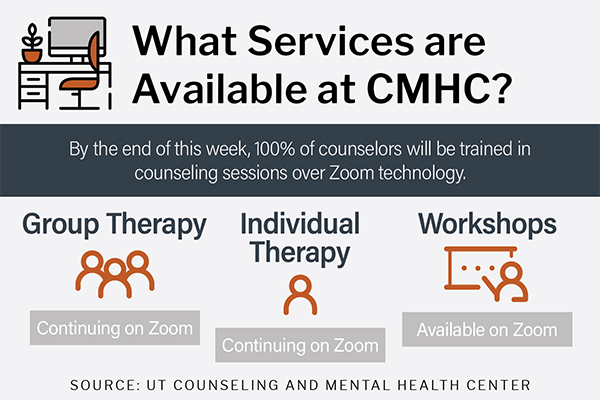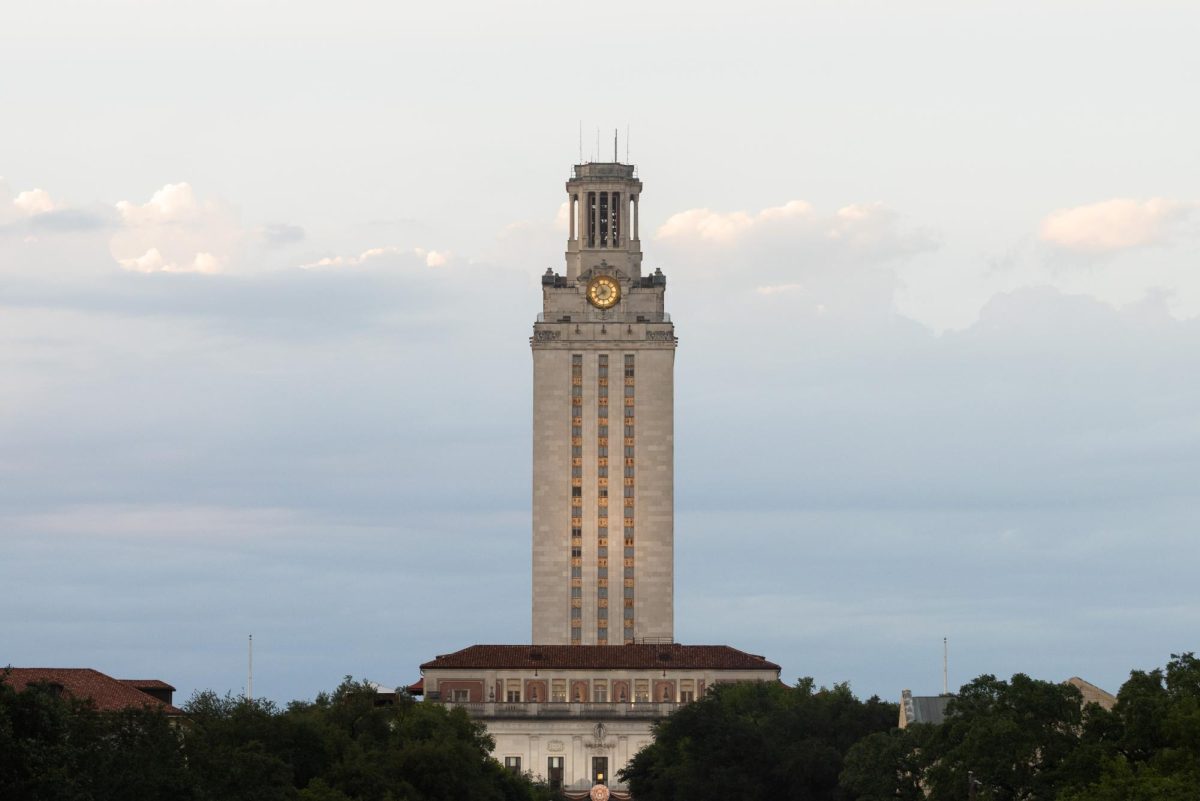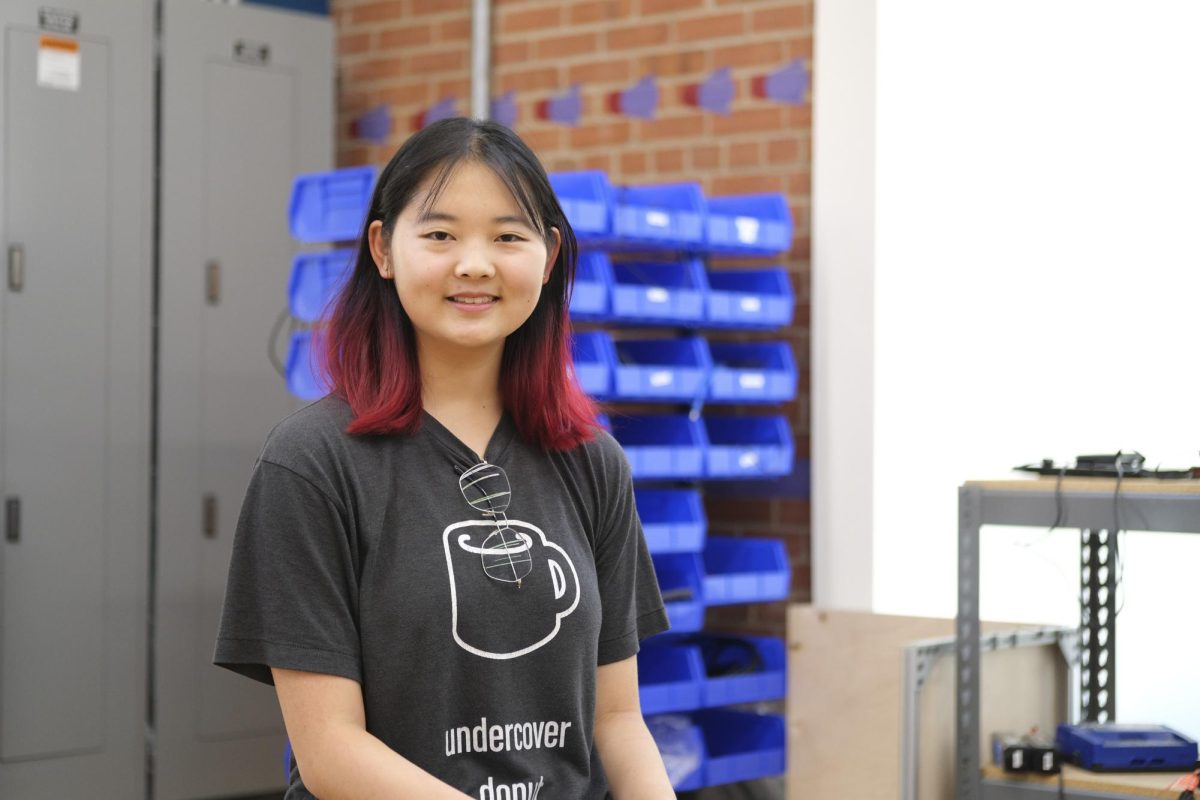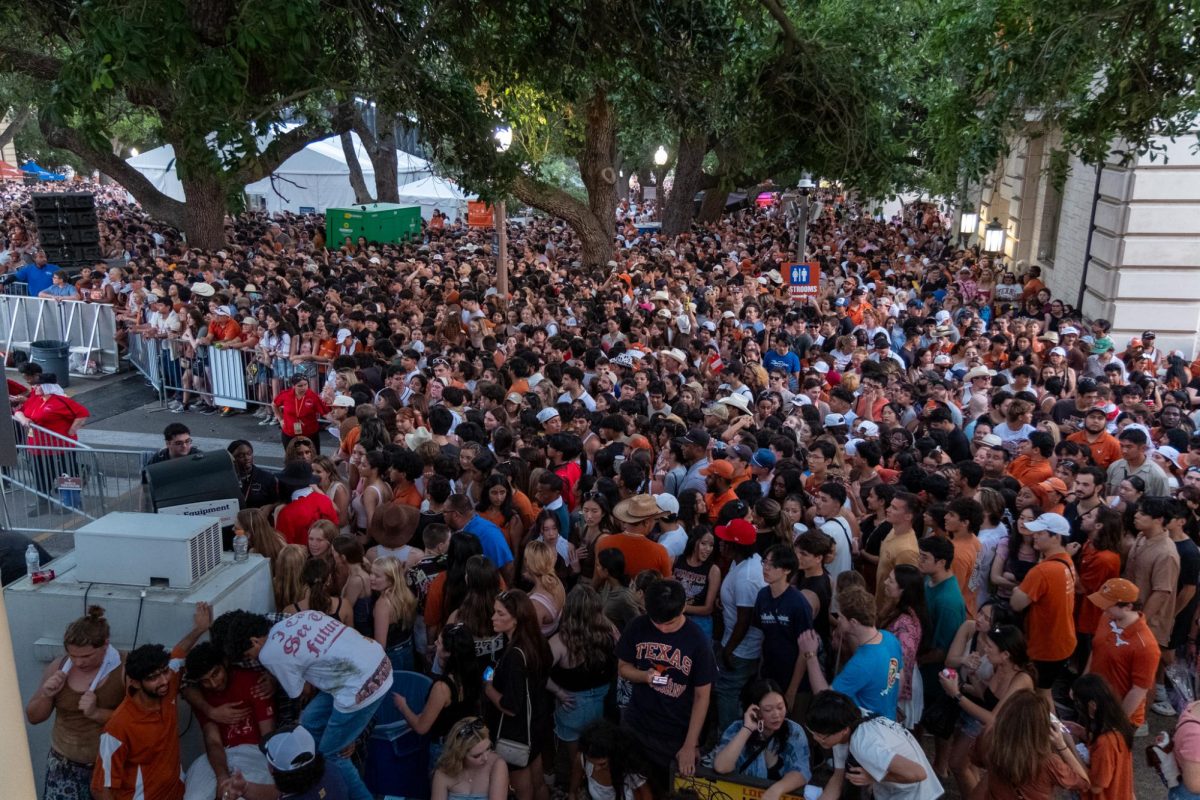Editor’s note: This story is part of The Daily Texan’s coverage of how coronavirus concerns are affecting UT-Austin. Read the rest of our coverage here.
The Counseling and Mental Health Center has transferred all of its services online amid the COVID-19 crisis.
CMHC resources, including one-on-one counseling sessions, group sessions and workshops, have moved online, either to Zoom communication or telecounseling, said Marla Craig, associate director for clinical services at CMHC. Craig said over 45 counselors are currently trained in video counseling, and by the end of this week, all counselors will be trained in video counseling.
“We're continuing to provide group services, workshops, discussion groups and forums to our students,” Craig said. “Services (are) still being offered, which is fantastic. So really for our students, I know that it’s been very stressful and I know they're focused on classes right now, but we're there for them whenever they're there needing us.”
Craig said those looking to use CMHC services can still call its hotline to receive a consultation and be referred to a session. The CMHC has added multiple protective systems to ensure that calls cannot be broken into, Crag said. Additionally, counselors are trying to make sure students have a safe space to hold meetings.
Craig said the CMHC had some telehealth systems in place before the COVID-19 outbreak, which has made the transition to fully online easier. However, for individual clinicians, Craig said transitioning to online has still presented some challenges.
“I think (our clinicians) really value working really closely with our students, being on site and being present,” Craig said. “The idea of having to be moved away from them and to transition to phone and to video, I think it's a continuum. Some of our clinicians are … much more comfortable with technology, and it's pretty much learning a new system.”
A student who uses CMHC services and requested anonymity said counselors have been helpful by being flexible with meeting times and reached out to him over the phone to notify him of the ways in which services were changing. In addition, he said he was able to meet with his group to finish their six-week course over spring break.
“Just knowing that it's available and the counselors are all really accessible anytime, it's really good having that in the back of my mind, knowing that they are there even when I'm so far away,” the student said. “It's really great they are doing that.”
University Health Services recommends students stay active, engage in hobbies and stay connected with friends. Nadiah Bernard, an Asian studies and languages foreign exchange student, has followed these guidelines while self-isolating after returning to her home in France.
“It was really strange at the beginning (to be alone),” Bernard said. “Human connection is really important, and thanks to technology now you can call your friends, (which made it) okay.”





















